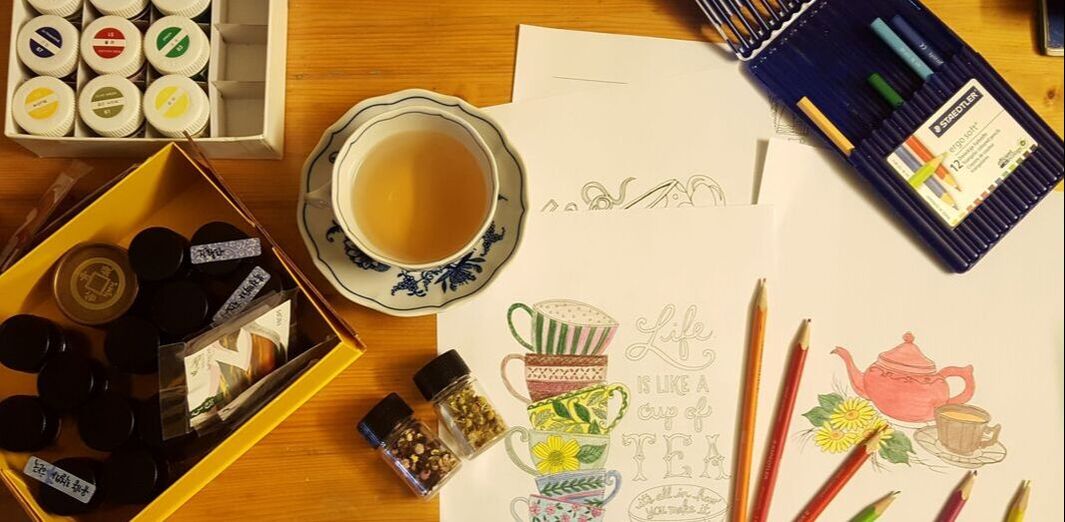|
Chronic Illness And Mental Health’s Relationship To Physical Health Living with chronic illness is often more than just a physical battle; it's a complex journey that profoundly impacts mental well-being. In counselling, understanding the intricate relationship between mental health and chronic illness is essential for providing holistic support to individuals facing these challenges. Chronic illness can trigger a range of emotional responses, from grief and anxiety to depression and anger. Likewise, the psychological stress of managing a chronic condition can exacerbate physical symptoms, creating a cycle of distress that requires compassionate supportive client centered mental health care. Self-identity, Self-worth, And Life Purpose Can Feel Daunting At the core of counselling for mental health and chronic illness lies the recognition that these two realms are deeply interconnected. If you are facing the challenges of chronic illness, you may grapple with profound changes in self-identity, self-worth, and life purpose as you navigate the realities and often constant fluctuations of your condition. Addressing these existential concerns requires a nuanced approach that acknowledges both the physical and emotional dimensions of your experience. By creating a safe and empathetic space, counselling can help you explore your emotions, develop coping strategies, and rebuild a sense of meaning, as well as helping to identify and highlight the choices you do have, in the face of adversity. A Safe Place To Explore Counselling provides a safe space for clients to confront societal stigma and often heavy internalized shame associated with chronic illness. People with chronic illness often also face stigma and challenges in healthcare settings, especially women and racialized people. By fostering self-compassion, individuals can cultivate a healthier relationship with themselves and their condition. Through collaborative goal-setting, and support network building, counselling empowers clients to navigate the complexities of healthcare relationships and advocate for their needs as effectively as possible . Ultimately, by addressing the intertwined nature of mental health and chronic illness, counselling offers a path toward greater understanding, acceptance, and support for those navigating this challenging journey.
0 Comments
This is a short bite sized meditation that is easy to incorporate into your day. This meditation will help you relax and gently support you on your way to healthy boundaries. MEDITATION TRANSCRIPTA transcript is provided so you can experience this meditation at your own speed if you like. Some like to use their own meditation music and extend the meditation past 3 mins.
Boundary pushers in your life can be tough to tackle. On one hand, you want to be respected without pressure to do or be something you are not comfortable with. On the other hand, you may be getting feedback that the boundary pusher isn’t happy with the decisions you are making. This could look like minimization, direct “I don’t like it” statements, or flat out ignoring your boundary despite clear communication. Have a look at these three tips to help you on your journey to having healthy boundaries. #1 If you are able, decide ahead of time what you are and are not willing to do. If you don’t have time beforehand, you can buy yourself some time and space before you respond so you can make a decision that works for you. Phrases like, “I’ll get back to you on this” or “I’ll have a think on it and let you know when I have decided” can be helpful to have at the ready. #2 If you are finding you have to repeat the boundary constantly then it’s likely time to have another conversation so you can speak to the boundary directly. It’s important to communicate as clearly and calmly as possible. They might not like the boundary, especially if they were benefiting from something before the boundary was made. It’s common for a boundary pusher to try and push the anxiety they are feeling back on you. Remember this does not mean the boundary isn’t valid! #3 Have a look at why boundaries are so hard for you. This could be a self reflection to start, with a counsellor, or even in a workshop focused on learning about boundaries. If boundaries are tough to put in place and stand solidly in, then your difficulty with boundaries could have an origin in your early development. Some questions to explore might be: Were boundaries not ok or allowed growing up in your family? Was it ok for you to have needs? Think back to as early as you can remember in your life when you had to set a boundary. How did your family react? These are all important and useful questions to start to ponder as you work your way towards becoming solid in knowing what your boundaries are and discussing them in your relationships.
If you are looking for a counsellor to help support you as you get clear on your boundaries, contact us here to schedule a 15min consult. Meditation Minute is an ongoing series of short meditations so that you can have an easy to experience tool at the ready. This is a brain rest and refresh meditation to help you feel relaxed and refresh. MEDITATION TRANSCRIPTHere is a transcript so you can read and experience at your own speed, especially if you'd like to slow down the pace of the meditation. Feel free to listen to the guided meditation multiple times if you like.
In today’s world we are constantly stimulated and connected via our electronics and are often expected to respond straight away or quickly to most messages. Even if it’s not urgent there is still that little, and sometimes not so little, part of you that wants to go and have a look at the message. Before cell phones, giving your brain some down time was also challenging. It was pretty common to hear that people often complained about or resisted the idea of meditation. The number one complaint was by far that people feel restless, anxious, or frustrated/agitated when they stopped “doing” and had nothing to keep their mind busy.
Many people resist quiet brain time because it is common that the busyness or the constant stimulation is masking and helping manage these feelings of anxiety. Anxiety or anger is usually an emotion that has other emotions tucked away underneath it that are even less desirable to feel. These feelings could look like fear, sadness, grief or many more feelings and even combinations of those feelings. In other words, at first glance, it seems easier to feel the anxiety than it is to feel the actual feelings living underneath that anxiety. It’s ok to distract yourself from your emotions sometimes, but when it becomes the norm it can become a problem. Carrying around your feelings in a container without “emptying” the container regularly can be exhausting and it can be really scary to even start to open the lid on that container if you haven’t been taught how to process the emotion underneath that tightly fastened lid in a healthy way. If learning how to cope while experiencing emotions and also trying to give your brain some down time, seems like a huge mountain to climb, you might consider breaking it down into smaller bite sized steps. First try setting a timer and giving yourself a break from stimulation in mini sessions throughout the day. If you start with 10mins a day, 30 mins once a week, or even 1-5mins 1 to 2 times a day and gradually increase when you feel ready, it could be a more manageable approach.
It might be uncomfortable at first, but giving your brain downtime could result in less anxiety, more focus, and better ability to cope when life throws you curveballs. You don’t have to meditate, but it is helpful to take note of what you are feeling when you take a moment to be unoccupied or distracted. You could simply sit and watch the birds or the trees outside or focus on a simple breathing pattern while you note what feelings are coming up. If you feel like you have to do something, you could write down your feelings and what comes up around them or even repeat an easy mantra. If this is something that resonates with you but still feels too big to tackle on your own I would recommend seeking a mental health professional to have some support while navigating this. Contact us here to connect with a counsellor to book a complementary 15min consult to see if you are good fit. Focusing on your spiritual growth work, finding a supportive community and counselling can be cornerstones for helping you navigate through challenging times. One often overlooked way of navigating rough seas is learning or getting more clear on your gifts, passions, and values. Knowing your gifts, passions and values will likely not magically fix your challenges; however, it can help very much in building a strong foundation to weather the challenges. It will also help you stay on course if you have something you are working toward in life whether it be tangible and concrete or personal growth centered or even both. Gifts If you have no idea where to start, start with what you tend to be good at. Writing down a list, creating a doodle or drawing, or creating a vision board of your gifts can be a good way to remember. Include anything you have been good at over your entire life, even if it seems silly or trivial, include it! You never know when that long forgotten gift that you have might come in handy. Sharing your gifts with others can be useful or helpful in honoring and recognizing your own innate talents as well as creating connection with others. Often sharing your gift benefits both you and the receiver.
Passions Some would say that gifts and passions are synonymous, I would say that is true sometimes but not always true. Passions can be something you are not gifted at or even good at. Gifts can be something you are naturally good at or have acquired an expert-like ability for, but sometimes you might not be passionate about it at all. A passion is something that you feel moved to do or practice; your heart often does the driving. If you feel lost here, you might try writing a list of what you feel like could be your passion and then go over each one and see how it makes you feel. If you think about your passion and mostly feel excited or energized by it then you are on the right track. If you think about something that you might think is your passion and you feel deflated or exhausted, then it might be a good time to re-evaluate. It might be that you need some clarity, an adjustment, or that the passion is just not doing for you what you had hoped it would. Leaning into your passion and cutting out the things that are draining can help you focus more time on something you love and expand it rather than being stuck on a spin cycle trying to make something work that is not. Values Last but certainly not least is values. Your values are your guiding light beliefs. They are fundamental beliefs that drive who we want to be, how we express that in the world, and how we interact with or treat others. Values help us guide our actions and determine how to react to challenging situations in our life. If you don’t have your values defined, it can be tough to know how you want to act or react to something going haywire in your life. Values especially help you take action in a way that you feel is integral for you. In turn, you will find that although knowing your values doesn’t make your challenges disappear, being aware of them can significantly help you make decisions you feel more aligned with and might save you a bit of time swimming in regrets. If you aren’t sure what your values are or if you want to get clearer on them, try this exercise. Values Exercise1. Go online and search for a list of values. There are many many lists out there, so grab a tea or a coffee and take some time looking at the many possibilities.
2. Write out a list of the qualities that you feel most in alignment with, 5-10 is great. Try to stick to one word values so they are easy to remember and you don’t get too stuck and heady about it.
3. Next to the values that you have on your shortlist, write a number from 1-10 beside each value on your list. Ten would be the value that you feel most strongly in alignment with and one would be the value that you least align with.
4. When you have completed assigning values to your shortlist, have a look at your top 3. These are your core values that are the strongest for you right now. Don’t worry about getting this exactly right, if you feel that they change or that you could better describe one or all of them, then go ahead and adjust them. You might want to visit these values from once a month to once a year to make sure they are updated and aligned with all your new life experiences and growth.
So now that you have a start on clarifying your gifts, passions, and values, you have added reinforcing to your foundation. This means that you are working toward having more tools at your disposal and a greater ability to know what your needs and wants are. These are not “just a do it once and forget it,” type exercises, If you would like help continue to define and develop a relationship with your gifts, passions and values, contact us here to get some support while you discover and more deeply define parts of yourself. Minute meditations are short meditations that are easy to fit into your day. This is a 3 minute safe space meditation that helps to encourage relaxation. Meditation transcriptIf you prefer to experience this at your own pace here is the transcript. You can continue to listen to this 3min guided mediation as many times as you like to visit your safe space, or pop on your favorite relaxing meditation track and explore your safe place for as long as you wish.
When going through challenging times, and it is intertwined with something else happening that you have little to no control over, it can feel like a bitter pill to swallow. Some examples might be, someone close to you passing away, a change of jobs, friendships or relationships changing or ending, your health changing, or having to move before you are ready or want to. Sometimes spiritual and/or personal growth can help you get through tough situations by focusing on what you can have influence over. Your daily, weekly, or once in a while spiritual practice is something you have a choice to practice. You might take a moment to notice what you feel drawn to spiritually and what practices just don’t resonate with you. This is all important information, even the things that are not working for you. For instance, so many people struggle with wanting to sit and clear their mind to meditate as a spiritual practice. That is a great practice but it’s not for everyone. There are so many different types of spiritual practices and types of meditation. If you like moving, try meditating with your eyes open while walking, you could pick a mantra to repeat every time your foot lands on the ground, or walk a labyrinth or a labyrinth pattern, if you don’t have one already made for you in your community. Alternatively, you could listen to a meditation that has visualizations if you want to be still but don’t like the “emptying your mind” technique. Some people love to keep it simple with breathing techniques, of which there are many many different types! There really is a spiritual or meditative type of practice for everyone, if you haven’t found a good fit yet, don’t give up! A little thinking outside of the box could help you get set with a practice that works for you. It is important to remember, it’s not about forcing yourself to feel ok with something, but rather looking at a situation with curiosity, when you are ready to do so, and discovering what you might learn about yourself in the process. Personal and/or spiritual growth can sometimes be used instead of grieving or having feelings in order to avoid feelings. It’s important to allow yourself to have your feelings first! If it’s not something you do naturally, letting your feelings out can feel like a challenging, uncomfortable, or messy step. This can be especially so if you haven’t yet worked out how to sit with your feelings and practice self care that uniquely works for you. Repressed feelings tucked away in an internal container have a way of coming out at inconvenient times, so it’s helpful to develop a healthy way of emptying your “feelings” container.
If you struggle with knowing how to have your feelings first, or are not sure where to start with your personal or spiritual growth, contact us here to get started on your journey today. Going through a challenging time in your life can be really rough, and exhausting, especially if you tend to do things on your own and struggle to ask for help. There are a few things that you can do to help ease the burden of a challenging time in your life to help yourself manage or avoid burn out and lessen stress. Here is an ongoing series that can help you start to learn about constructing or reinforcing your foundation so that you are able to learn how to feel empowered to get through these times while building the ability to reduce or avoid burnout. Seek A supportive communitySometimes seeking support and community can feel intimidating. If it does, try breaking this step down into smaller steps. If you get stuck, building community is a great topic to take into a counselling session, or ask a trusted resourceful person in your life to help brainstorm. Try looking into different groups and communities that seem like a good fit. If you are thinking “erm yeah, I am not so excited about being in a big group or community”, it doesn’t have to be big, it could be a very small community if you prefer smaller groups. You could even try an online community or group. I have heard of some people playing video games daily or weekly with a team, or a group and being on voice chat with each other being a source of connection and support. You could also opt to interact with people from the community on a one-on-one basis too. More than one community can be helpful if that feels right for you but you are not required to do more, or anything that feels overwhelming rather than supportive. Keep in mind, this is something that is a good fit for you rather than you trying to contort yourself to fit another situation. All aspects of this are up for your customization. If a community feels supportive and comfortable and that looks like 3 people to you, then that is the perfect community for you! If you feel stumped as to where to start looking for a like-minded community that would be a good fit, try some of these ideas to get you started.
This all can take a bit of trial and error to figure out what it is you need and want, and to find a good fit for a place where you feel accepted as you are. As you open up to considering the communities you have access to, gradually you will start to reinforce a stronger foundation and find others who also seem to have similar experiences and feelings.
If you would like to work with a counsellor at Empathic Heart Counselling contact us here to get started on your journey to a solid foundation and support to use those life challenges as stepping stones to build the life you want to experience. Have you ever had an experience when you were going about your day happily and then someone with big feelings suddenly entered your environment, in one way or another, and it turned your sunny day and your own feelings upside down? This might feel confusing and leave you wondering why you couldn’t seem to let their feelings roll off your back. If this experience seems familiar, you may not know there are others that also feel this way. Most people would just like this challenge of, “taking other people’s feelings on,” to take a hike and let them be. It can be an exhausting and distracting experience that feels like it is taking over your life in extreme cases. You do not have to suffer alone, thankfully there are more people that are speaking up about their experiences and as a result, there are more therapists that are starting to cater to this niche. As a result, there are more “tools” to be put in the empathic or HSP toolbox to help you find some balance. One of the first places to explore when struggling with this issue is why this imbalance exists. Some good questions to ponder are “How come I even have an "inbox" for other people's feelings in the first place?” In other words, why are you registering and then taking on others' feelings to begin with? Another way to ponder this is, what happened in your life that made it necessary to develop an “inbox” to experience other people’s feelings? Some might say “it is because I am Empathic” or “because I am an HSP” or just plain old “I seem to be sensitive” however, some people who are empathic and/or HSP seem to be able to turn the volume down and don't struggle with this so much, so what is the difference?
The truth is, the answer is different for each person; however, the trend seems to be that people who feel unbalanced in taking on others' feelings have had to monitor the feelings of caretakers, parents, teachers, or people who hold a position of power while they were young and developing, to get their needs met. This could look like experiencing but is not limited to neglect, bullying, abuse, racism, ableism, or poverty. Many people in these scenarios have had to over-develop their “empathy” muscle in order to figure out ways of interacting with people that are in a position of power to get their basic needs met. It is a muscle developed out of necessity and often under duress. Unpacking how your particular empathy muscle got over-developed is an important step in dismantling an old program that you probably don’t want or need anymore. If you’d like to work with someone on discovering the root of your empathy imbalance, contact us here. |













 RSS Feed
RSS Feed